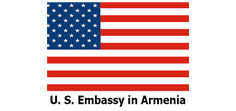Talking about the recent considerable price increase for a number of commodities in Armenia, Prime Minister Karen Karapetyan made a noteworthy statement.
In response to the question by Ararat Mirzoyan, deputy from the RA National Assembly Yelq faction, the prime minister said that it is related to the price hike in the international markets, and that the government has no right to influence the pricing of goods.
Then, in response to Mirzoyan’s question about the increase of the excise tax, the prime minister responded, “the excise tax that we have increased, we have an alternative butter import option, which is without excise [․․․] we have different channels through which we can bring it. The excise tax for butter in New Zealand has increased, in Belarus, Russia, it has not.”
It should be noted that by studying the fluctuations in the price of butter in the international markets, we can state that growth has really been recorded. However, the prime minister’s statement regarding the increase of excise tax on butter does not correspond to reality for the simple reason that there is no excise tax on butter in Armenia.
According to the tax Code, there are 13 commodities subject to excise tax, namely, ethyl alcohol (except for cognac alcohol), alcoholic beverages, beer, wine, tobacco products (including tobacco substitutes, cigars), lubricants, petrol, diesel fuels, crude oil, oil products, petroleum gases, other hydrocarbons (except for uncompressed natural gas), compressed natural gas.
Excise tax is a tool by which the government manages the consumption of some or all of the commodities under the “value increase – consumption reduction” principle. And the excise tax is applied to the product regardless of whether it is imported from the EAEU, third countries or produced in Armenia.
In this sense, even if the state decided to use this instrument, reduce the consumption of butter in Armenia and subject the butter to excise tax, it would refer to all kinds of butter, including Belarusian and Russian ones.

 FACTOMETER
FACTOMETER










